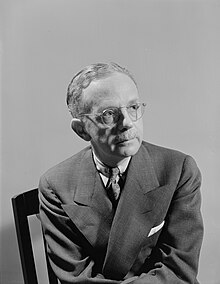Walter Francis White
| Walter Francis White | |
|---|---|
 |
|
| Executive Secretary of the National Association for the Advancement of Colored People | |
|
In office 1931–1955 |
|
| Preceded by | James Weldon Johnson |
| Succeeded by | Roy Wilkins |
| Personal details | |
| Born |
July 1, 1893 Atlanta, Georgia, U.S. |
| Died | March 21, 1955 (aged 61) New York City, New York, U.S. |
| Nationality | American |
| Parents | George W. White Madeline Harrison |
| Alma mater | Atlanta University |
| Known for | Civil rights activist |
Walter Francis White (July 1, 1893 – March 21, 1955) was an African-American civil rights activist who led the National Association for the Advancement of Colored People (NAACP) for almost a quarter of a century, 1931–1955, after starting with the organization as an investigator in 1918. He directed a broad program of legal challenges to racial segregation and disfranchisement. He was also a journalist, novelist, and essayist. He graduated in 1916 from Atlanta University (now Clark Atlanta University), a historically black college.
In 1918 White joined the small national staff of the NAACP in New York at the invitation of James Weldon Johnson. He acted as Johnson's assistant national secretary and traveled to the South to investigate lynchings and riots. Of multiracial, majority-white ancestry, at times he "passed" as white to facilitate his investigations and protect himself in tense situations. White succeeded Johnson as the head of the NAACP, leading the organization from 1931 to 1955.
White oversaw the plans and organizational structure of the fight against public segregation. He worked with President Truman on desegregating the armed forces after the Second World War and gave him a draft for the Executive Order to implement this. Under White's leadership, the NAACP set up its Legal Defense Fund, which conducted numerous legal challenges to segregation and disfranchisement, and achieved many successes. Among these was the Supreme Court ruling in Brown v. Board of Education (1954), which determined that segregated education was inherently unequal. White also quintupled NAACP membership to nearly 500,000.
...
Wikipedia
